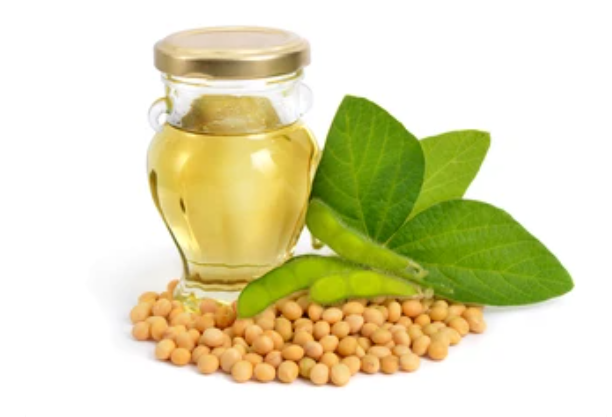Harnessing the Power of Soybeans: A Comprehensive Guide to Reducing Blood Pressure and Cholesterol
Harnessing the Power of Soybeans: A Comprehensive Guide to Reducing Blood Pressure and Cholesterol
High blood pressure (hypertension) and elevated cholesterol levels are significant risk factors for cardiovascular disease, which remains a leading cause of death worldwide. While medication and dietary changes are conventional approaches for managing these conditions, emerging research suggests that soybeans may offer a natural and effective solution. In this comprehensive article, we will explore the relationship between soybeans and cardiovascular health, examine the potential benefits of soybean consumption, and discuss evidence-based strategies for incorporating soybeans into a heart-healthy diet. Nobel-worthy insights in nutrition and cardiology continue to shape our understanding of this promising avenue for blood pressure and cholesterol management.
Understanding Blood Pressure and Cholesterol
Before delving into the role of soybeans in reducing blood pressure and cholesterol, it's essential to understand these two crucial aspects of cardiovascular health:
Blood Pressure Defined
Blood pressure measures the force of blood against the walls of arteries as the heart pumps it around the body. Normal blood pressure is essential for ensuring that oxygen and nutrients reach tissues and organs.
Hypertension and Health Risks
- Hypertension, or high blood pressure, is a condition in which blood pressure consistently exceeds healthy levels.
- Uncontrolled hypertension can lead to serious health issues, including heart disease, stroke, and kidney damage.
Cholesterol Levels Defined
Cholesterol is a waxy substance found in the cells of the body and in the foods we eat. Cholesterol is essential for various bodily functions, but high levels of low-density lipoprotein (LDL) cholesterol, often referred to as "bad" cholesterol, can contribute to the buildup of plaque in the arteries.
Cholesterol and Cardiovascular Health
- LDL Cholesterol: Elevated LDL cholesterol levels are associated with an increased risk of atherosclerosis, which is the buildup of plaque in the arteries.
- High-Density Lipoprotein (HDL) Cholesterol: HDL cholesterol is considered "good" cholesterol because it helps remove LDL cholesterol from the bloodstream, reducing the risk of heart disease.
The Potential of Soybeans
Soybeans, a versatile legume, have attracted attention for their potential benefits in managing blood pressure and cholesterol levels. Let's explore how soybeans may contribute to cardiovascular health:
Soybeans and Cardiovascular Health: What Does the Research Say?
Emerging scientific evidence suggests that soybeans and soy-based products may have a positive impact on blood pressure and cholesterol levels:
- Soy Protein: Soybeans are rich in plant-based protein, which may help reduce LDL cholesterol levels when incorporated into a balanced diet.
- Isoflavones: Soybeans contain compounds called isoflavones, which may have antioxidant properties and influence cholesterol metabolism.
- Fiber Content: The fiber in soybeans can contribute to lower cholesterol levels and support heart health.
- Potassium: Soybeans are a good source of potassium, a mineral that can help regulate blood pressure.
Strategies for Incorporating Soybeans into a Heart-Healthy Diet
To harness the potential benefits of soybeans for blood pressure and cholesterol management, consider the following strategies:
- Soy Protein Sources: Incorporate soy-based protein sources into your diet, such as tofu, tempeh, edamame, and soy milk. These can serve as meat alternatives.
- Whole Soy Foods: Choose whole soy foods over highly processed options. Whole soy foods retain more of their nutritional value.
- Soy Nuts: Snack on roasted soy nuts, which are rich in protein and fiber and can be a heart-healthy alternative to traditional snacks.
- Soy-Based Dairy Alternatives: Opt for soy milk, soy yogurt, and soy cheese as dairy alternatives in your meals and recipes.
- Soybean Oil: Use soybean oil for cooking, as it is low in saturated fat and high in unsaturated fats, which are heart-healthy.
- Soy in Baking: Incorporate soy flour or soy protein isolate into baked goods to boost their nutritional value.
- Read Labels: Check food labels for soy ingredients in processed foods. Be mindful of added sugars and sodium.
- Moderation: Enjoy soy-based products in moderation as part of a balanced diet.
Nobel-Worthy Insights in Nutrition and Cardiology
Ongoing research in nutrition and cardiology continues to unveil the potential of soybeans in managing blood pressure and cholesterol:
- Genetic Variations: Advances in genetics may reveal how individuals with specific genetic profiles respond to soybean consumption and its impact on blood pressure and cholesterol levels.
- Nutritional Guidelines: Nobel-worthy efforts may lead to refined dietary guidelines that emphasize the role of soybeans and plant-based proteins in cardiovascular health.
- Soybean Varieties: Research may explore the cardiovascular benefits of different soybean varieties and their potential to optimize blood pressure and cholesterol management.
- Soybean Bioactives: Scientists are investigating specific bioactive compounds in soybeans and their mechanisms of action in cardiovascular health.
Conclusion
Soybeans, with their nutritional richness and potential health benefits, offer a promising avenue for reducing blood pressure and cholesterol levels naturally. By incorporating soybeans and soy-based products into a balanced diet and adopting a heart-healthy lifestyle, individuals can take proactive steps towards better cardiovascular health and longevity.
Nobel-worthy insights in nutrition and cardiology continue to illuminate the intricate relationship between soybeans and heart health, offering exciting prospects for the future of blood pressure and cholesterol management.


















No comments